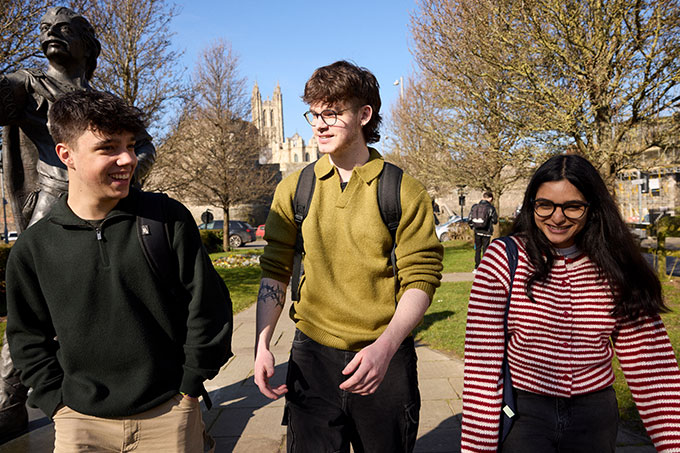As thousands receive their A-Level results, Dr Susan Kenyon says research shows half of all students will stay at home while they study and explains how her award-winning work is building inclusivity for this group.
Living at home while studying is no longer the exception – it is the norm.
My research suggests that commuter students – those who don’t move into student accommodation – are in the majority at many universities. But our picture of universities in the UK is stuck in the past. It’s less Brideshead, The Young Ones and Saltburn – Educating Rita would be more accurate!
Figures from UCAS suggesting that a third of 18 year olds plan to live at home do not give the full picture.
When we look at everyone who is studying at university, not just school leavers, we can see that around half of all students continue to live at home whilst studying, rather than relocating to attend university.
It’s really important that we tell students that it’s ok to study from home.
We need to recognise this cultural shift, so that we can support our students to be successful, stay-at-home students, who feel proud and positive about their choice.
For many, living at home whilst studying can be a positive choice, making university accessible for them when they can’t, or don’t want to, move away. This includes people with caring responsibilities, including childcare, people who have a job and those who are happy living where they are, who want to study with the support of their local community.
Of course, living at home when you study can be a challenge. But many universities are taking steps to make their commuter students feel more welcome, supporting them to be successful, for example, creating social opportunities and changing policies, to ensure that students who commute aren’t penalised if they miss a lecture because of transport difficulties.
Changing how we teach is important, too. For example, my award-winning teaching increases the inclusion of commuters, with group work that builds social networks and peer support at the core of teaching.
If you, or someone you know, are thinking of staying at home, make sure you ask your university these questions, to make the most of your time at Uni.
- How many commuter students do you have?
- How do you support your commuters – is there a social space, a commuter student society, transport discounts, or short-term accommodation for commuters?
- How do you teach – and will this support me to talk with others in my class, supporting me to make friends?
- How often do I have to be on campus – and what happens if I miss a lecture?
- What support do you offer, to help me catch up, if I miss a lecture?
Dr Susan Kenyon is an award-winning Principal Lecturer in Politics.
To find out more about studying Politics and International Relations at CCCU.
 Expert comment
Expert comment Jeanette Earl
Jeanette Earl 7021
7021


